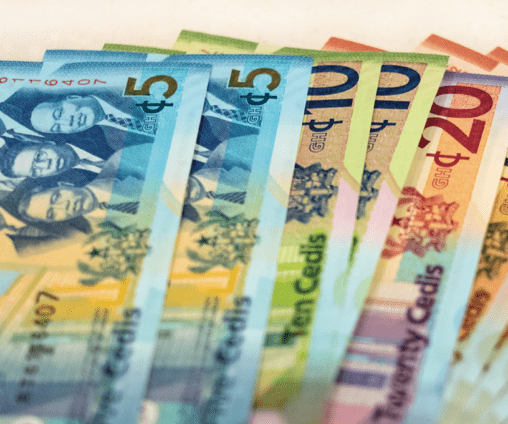Navigating Through Economic Turbulence: Reviving The Ghanaian Cedi
The Ghanaian cedi’s depreciation against the US dollar has been a source of economic concern, reflecting broader issues within Ghana’s economy.
This article explores strategic measures to stabilize and strengthen the cedi, aiming for sustainable economic growth and resilience against external shocks.
Analyzing the Depreciation:
The cedi’s depreciation is attributed to factors including expansive fiscal policies, banking sector challenges, global economic shocks, and high inflation rates.
These elements have collectively strained Ghana’s economy, necessitating a comprehensive strategy for recovery and stability (Al Jazeera) (Trade.gov).
Strategic Measures for Stabilization:
1. Fiscal Consolidation:
Implementing strict fiscal discipline to manage public spending and reduce the budget deficit.
This involves prioritizing essential expenditures and avoiding excessive borrowing, particularly from foreign sources.
2. Revenue Enhancement and Taxation Reform:
Expanding the tax base and enhancing revenue collection without burdening the citizenry.
Simplifying tax codes, closing loopholes, and leveraging technology can increase efficiency in tax collection.
3. Banking Sector Reforms:
Continuing reforms in the financial sector to ensure stability and build investor confidence. This includes strengthening regulatory oversight and ensuring financial institutions’ robustness.
4. Diversification of the Economy: Reducing dependency on imports by investing in local industries and agriculture.
Encouraging local production can decrease import bills, thereby lessening the demand for foreign currency.
5. Improving Export Competitiveness: Enhancing the competitiveness of Ghana’s export sector to increase foreign exchange earnings.
Focusing on value-added exports and exploring new markets can contribute significantly to stabilizing the cedi.
6. Strengthening Foreign Exchange Reserves: Building up foreign exchange reserves to provide a buffer against external shocks.
This involves prudent management of commodity revenues and strategic use of international aid and loans.
7. Inflation Control: Tackling inflation through monetary policy adjustments to stabilize prices.
A stable inflation rate can enhance the purchasing power of the cedi and improve economic conditions.
8. Public and Private Sector Collaboration:
Fostering partnerships between the government and the private sector to drive economic growth.
Such collaboration can lead to innovation, job creation, and increased productivity.
9. Enhanced Governance and Transparency: Implementing measures to improve governance and reduce corruption.
Transparency in government spending and public contracts can improve public trust and attract foreign investment.
10. Engagement with International Partners: Collaborating with international partners for support in implementing economic reforms and accessing financial assistance when necessary.
Partnerships with organizations such as the IMF can provide valuable guidance and resources.
Conclusion:
The path to economic stability and a stronger cedi requires a holistic approach addressing the root causes of depreciation.
By implementing these strategic measures, Ghana can aim for a resilient economy that safeguards against future vulnerabilities and ensures sustainable growth for its citizens.
This paper is authored by Dr. Shirley Ayangbah, an accomplished scholar with expertise spanning international law (International Economic Law), economics, and sustainable development. With a Ph.D. in International Law focused on integrating sustainable development into investment treaties, and advanced degrees in economics and international relations.



